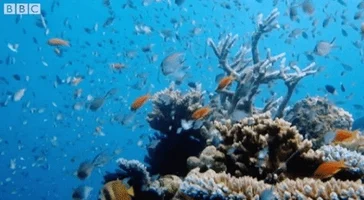URI
scientist awarded grant to study implications of climate change on coral reefs
 A University of Rhode
Island scientist and colleagues at the Bermuda Institute of Ocean Sciences
(BIOS) are launching a new research project to examine the resiliency of coral
reefs to global climate change.
A University of Rhode
Island scientist and colleagues at the Bermuda Institute of Ocean Sciences
(BIOS) are launching a new research project to examine the resiliency of coral
reefs to global climate change. The project, funded by a grant from Pembroke Foundation International, aims to determine how rapidly corals can acclimate and adapt to warming temperatures and what the reefs of the future will look like.
According to Hollie
Putnam, URI assistant professor of biological sciences, coral reefs have been
declining around the world in recent years due largely to bleaching caused by
climate change, and the future health of many of the world’s reefs is in
jeopardy.
“Corals are ecosystem engineers,” said Putnam, who joined the URI faculty in 2016. “They build the majority of the three-dimensional structure that forms their ecosystem, and without that ecosystem, we will have a tremendous loss of biodiversity, cultural resources, structural resources that protect coastlines, and a decline in reef-based fisheries and tourism.”
Putnam described
corals as “meta-organisms” that have multiple organisms living inside them.
“They have tiny marine plants in them that provide energy to the host,” she
explained.
“In warm temperatures, that symbiosis breaks down. And when the coral loses that energy, it can starve to death.”
“In warm temperatures, that symbiosis breaks down. And when the coral loses that energy, it can starve to death.”
The research team,
which includes several URI graduate students, will focus on a common species of
coral found in Bermuda called mustard hill coral (Porites astreoides).
Using experiments in the field and laboratory, they will track the reproduction
of the coral and test how robust the offspring are to various environmental
conditions.
Samantha de Putron, a
BIOS marine biologist, said the research will ask whether “the current
generation of corals will be better able to cope with stress as they continue
to experience it. And will the next generation of corals be adapted to the
environmental conditions experienced by their parents?”
Putnam, a coral
biologist and molecular eco-physiologist, has conducted similar studies of how
the environment of the previous generation of corals affects the survival and
fitness of the next generation of corals in Pacific reefs.
“Comparing findings
from corals in multiple geographic locations will allow us to better identify
regional implications for reefs threatened by climate change,” she said.
Based on her work in
Hawaii, Putnam said that some coral offspring perform better when their parents
have been preconditioned to higher temperatures or greater acidity.
“But depending on the
duration and timing of the stressor, we don’t know if the result will always be
positive or how it may vary between species,” she said. “So we’ll be testing
different coral species and a variety of temperature exposures.”
Part of the study will
be conducted in a state-of-the-art mesocosm facility that will be constructed
at BIOS with funding from the grant. Mesocosms, which are used frequently in
coral reef research, are outdoor experimental laboratories that enable
scientists to provide high-resolution control of environmental factors – in
this case, seawater temperature, pH and flow.
“The new mesocosm
facility will enable finely tuned manipulative experiments allowing for
comparisons of coral physiological and molecular responses to changing
environmental conditions,” said BIOS reef ecologist Gretchen Goodbody-Gringley.
The three-year study
will conclude in 2020.